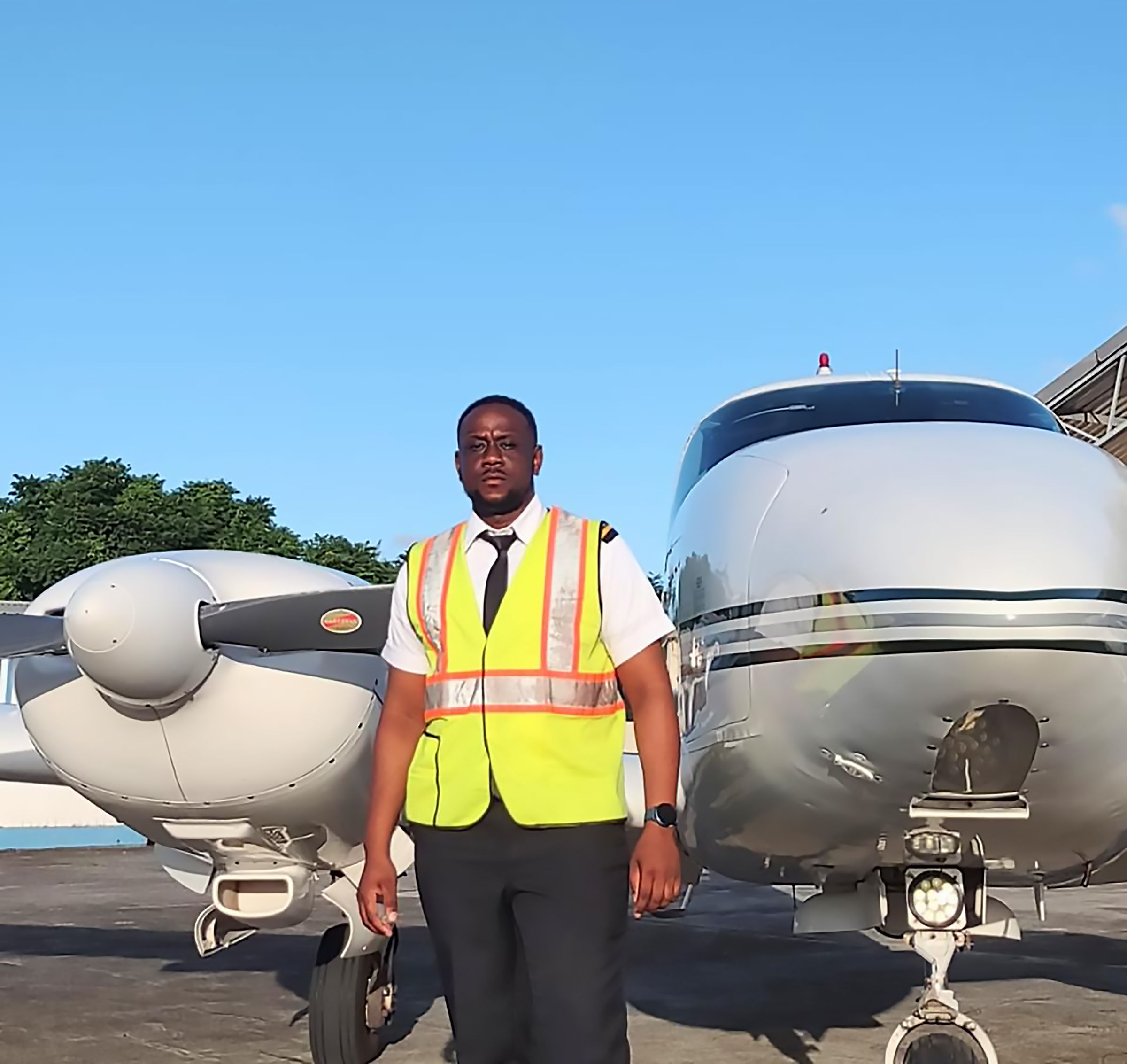Conversion of a Foreign Pilot’s Licence by ECCAA
Courtesy of the Eastern Caribbean Civil Aviation Authority
When you think of the Eastern Caribbean Civil Aviation Authority (ECCAA), what likely comes to mind are the duties and services provided by this organization to its Participating States. It is the governing body of the Eastern Caribbean skies. Aviation safety is its main business. But did you know that the Authority facilitates conversion of foreign licensing in accordance with the requirements of the International Civil Aviation Organisation (ICAO)? It’s among the services offered by ECCAA. Just ask Mr. Carrington, a pilot who successfully completed the process and is now the proud holder of an Antigua and Barbuda Commercial Pilot’s Licence.
Mr. Carrington, who underwent flight training in the United States, obtained his licence to fly there. However, he wanted the option of flying in the Eastern Caribbean. For this, he needed the right documents.
“I have an FAA (Federal Aviation Administration) licence – an American licence issued by the US,” Mr. Carrington explains. “However, in the Caribbean, the OECS (Organisation of Eastern Caribbean States) has its own civil aviation body … ECCAA.
“So, after job hunting, [I realized] there aren’t many jobs you can get with an American pilot’s licence in the region. And if you are not a US citizen, it’s almost impossible to penetrate the U.S. job market coming from flight school.”
Mr. Carrington said friends and family encouraged him to convert his F.A.A. licence to one recognized and used in the Eastern Caribbean – an ECCAA licence. So earlier this year, that is what he set out to do. The process, he noted, was not exactly straight-forward but he adhered to the steps laid out for him by ECCAA and was successful.
“It’s an examination you have to take -- a theory exam; there’s Aircraft General and Air Law,” Carrington said of ECCAA’s licence conversion process.
He further explained that the conversion process entails a certain number of documents and exams. Some of the documents include current and valid foreign licence and Medical Certificate, pilot logbook, ECCAA’s application forms and fees and proof of nationality. He added that details could be found on ECCAA’s Website, www.eccaa.aero, under the subhead of Personnel Licensing.
“When I was comfortable enough and I felt that I was capable … I got the prerequisites for the exam and scheduled an exam date.”
That date was April 28, 2024. The St Lucia resident said he got study material from various sources, including pilots who had already done the exam and friends, and through communication with ECCAA.
“They (ECCAA) worked with me even though I work and live in St Lucia,” he said. “It was a seamless process going into Antigua and Barbuda, where I took the exam. The exam was definitely challenging. However, with the help of ECCAA, I was able to complete the process with ease. It’s not a straightforward one but once you go with the guidance ECCAA, it becomes easy.”
After about two weeks, mid-May 2024, Mr. Carrington found out that he was successful. By the end of May 2024, his new licence was ready, and what was convenient, he noted, is that the ECCAA allowed for the authorization for another person to collect the documents on his behalf.
“I believe that ECCAA listens, and they try to work with you as much as possible,” Mr. Carrington said. “They will give you the information that you need, and I think that is the most important thing.”
Mr. Carrington is excited and looking forward to beginning his piloting career in the Caribbean.
For this process, Mr. Carrington had to liaise closely with ECCAA’s division of Flight Safety, in the section of Personnel Licencing. This division is responsible for the certification of air carriers and licencing of personnel who provide air transportation including pilots, engineers and air traffic controllers.
Staff members of the Personnel Licensing Division comprise Ms. Inverary, Mrs. Paul-Simon and other technical officers who coordinate with the applicants regarding the scheduling of the exams, application requirements and offer necessary advice to ensure a seamless application process. Mrs. Paul-Simon assures us that anyone interested in obtaining the right documents for flying in the Eastern Caribbean can do it also.
“Generally, people think the process is very complicated and very difficult but following the procedure makes it smooth and very possible,” Mrs. Paul-Simon said. “In Mr. Carrington’s case, he researched, communicated and followed procedure, and was successful in receiving the speedy result of a converted licence. Mr. Carrington was successful on his first attempt of both exams.”
The Eastern Caribbean Civil Aviation Authority is the regulatory agency for civil aviation activities within the Organisation of Eastern Caribbean States and provides services to associate States. In addition to issuing licences to aviation personnel, including pilots, aeronautical engineers, and air traffic controllers and others, it also provides certification for airports, aircraft, air operators and ancillary services; it ensures compliance in civil aviation safety and security through audits, inspections, surveys and tests; it ensures the existence of and compliance with civil aviation legislation, in addition to many other responsibilities.
The Participating States are Antigua and Barbuda, St Kitts and Nevis, Commonwealth of Dominica, St Lucia, St Vincent and the Grenadines and Grenada. Other states that are in receipt of communication navigation and surveillance and support services from the ECCAA are Montserrat, Anguilla and The British Virgin Islands.
This feature story is courtesy of the Eastern Caribbean Civil Aviation Authority.
